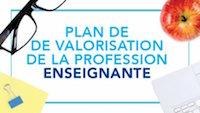«La protection des hommes contre la peur et la terreur n’implique pas la suppression du risque ; elle implique au contraire la présence permanente d’une certaine quantité de risque dans tous les aspects de la vie sociale ; car l’absence de risque affaiblit le courage au point de laisser l’âme, le cas échéant, sans la moindre protection intérieure contre la peur. Il faut seulement que le risque se présente dans des conditions telles qu’il ne se transforme pas en sentiment de fatalité.»
Cet article de Jacques Dufresne issu de l’encyclopédie thématique sur l’inaptitude de l’Agora est un vrai cadeau de Noël! L’extrait en bannière révèle l’importance d’aller au-delà de la réponse à donner au besoin de sécurité, légitime, mais devenu paralysant : «Une réhabilitation du risque comme besoin essentiel de l’être humain s’impose, sans quoi l’invitation à l’autonomie restera lettre morte» (source : Le risque, facteur d’autonomie).
C’est dans cet esprit que j’ai entrepris la première des lectures que j’ai mis de côté pour le congé, «The Role of the Educator» de Stephen Downes publié au début de décembre dans le Webzine «The Huffington Post». L’un des 23 rôles présentés m’a rappelé l’importance de la prise de risques chez tout bon prof:
«The Agitator — this is the person who creates the itch a person’s education will eventually scratch. The role of the agitator is to create the seed of doubt, the sense of wonder, the feeling of urgency, the cry of outrage. The agitator is sometimes the devil’s advocate, sometimes the revolutionary, sometimes the disruptive agent, and sometimes just somebody who is thinking outside the box. We an all be agitators, but scientists, skeptics, journalists and activists have elevated it into a discipline of its own.»
J’aime l’approche de Stephen en matière d’apprentissage et d’enseignement. Spécialement ce rappel qu’un seul individu dans la classe n’a pas à devoir jouer tous les rôles à lui seul…
Tags: "Administration scolaire" "com1500g" "Some posts with English content" LesExplorateursduWeb Partageons le savoir Pédagogie et nouvelles technologies«We can achieve much more efficient, effective and rewarding learning by organizing the educational system according to the sorts of educational services people might want and need, rather than by predefined collections of students assigned, almost randomly, to individual teachers. Rather than asking one person to perform every role, some of them very badly, for a given group of students, it makes more sense to ensure that these services are available where needed and to allocate them according to the needs of the students, the nature of the learning environment, and the type of learning being undertaken. (…) Yet relatively few of these roles need to be performed in person, and most of them scale pretty well. This means that with improved information and communications technologies we can begin to rethink how we’ve organized labor in education. This is in fact what is happening online, at least, outside the circles of formal education. People are finding coaching where they need it, community where they want it, and lectures and demonstrations for those days when they have the time.»




